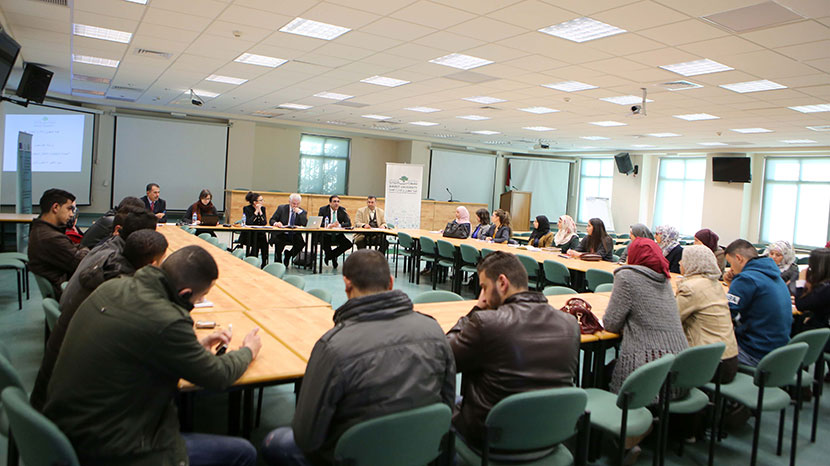Workshop Explores Pathways of Democratic Transitions and Transition Justice
The Faculty of Law and Public Administration held on December 5, 2016 a workshop on transitional justice and democratic transition, with the attendance of a number of international experts, academics and students.
The Dean of Law and Public Administration Yasser Amouri reaffirmed the faculty's mission to prepare its graduates for public leadership by advancing a challenging curriculum while pursuing complementary research, transforming learning into actions that serve our communities.
"Lectures and workshops are part of our aspiration towards leadership. We strive to build international partnerships to further empower our abilities to deliver the best quality of higher-education in the fields of law, public administration and political science."
International Expert Jean-Pierre Massias pointed out to Spain's experience in transition to democracy in the 1970s, alluding to the constitutional courts role in this wave, which has gradually led to transitional justice. He then analyzed the use and effectiveness of amnesty for human rights violations in achieving peaceful transitions.
The Head of the Law Department Mustafa Abdul Baqi reviewed transitional justice after the "Arab Spring", focusing on the experience of Morocco and Tunisia. He spoke about the role of transitional justice mechanisms within these societies.
Political Science and International Relations researcher Emilie Combaz questioned the effectiveness of the United States measures in combatting torture. She then explored ways to overcome this phenomenon, and empower the UN's measures.
The Director of Varenne Institute for Transitional Justice Magalie Besse talked about the International Criminal Tribunal for the former Yugoslavia role in dealing with war crimes that took place during the conflicts in the Balkans in the 1990's. Besse assessed the effectiveness of the International Criminal Tribunal for Rwanda in prosecuting those who were responsible for genocide and other serious violations of international humanitarian law committed in the territory of Rwanda.
Pointing out to Palestine's experience, Birzeit's law professor Hala Shoaibi pointed out to the restrictions to movement that the Israeli checkpoints impose against Palestinians, especially pregnant women. She assured that there must be grounds for Israel to be prosecuted for obstructing pregnant Palestinian women as they try to reach medical care during labor especially by the Criminal Court of Justice.







